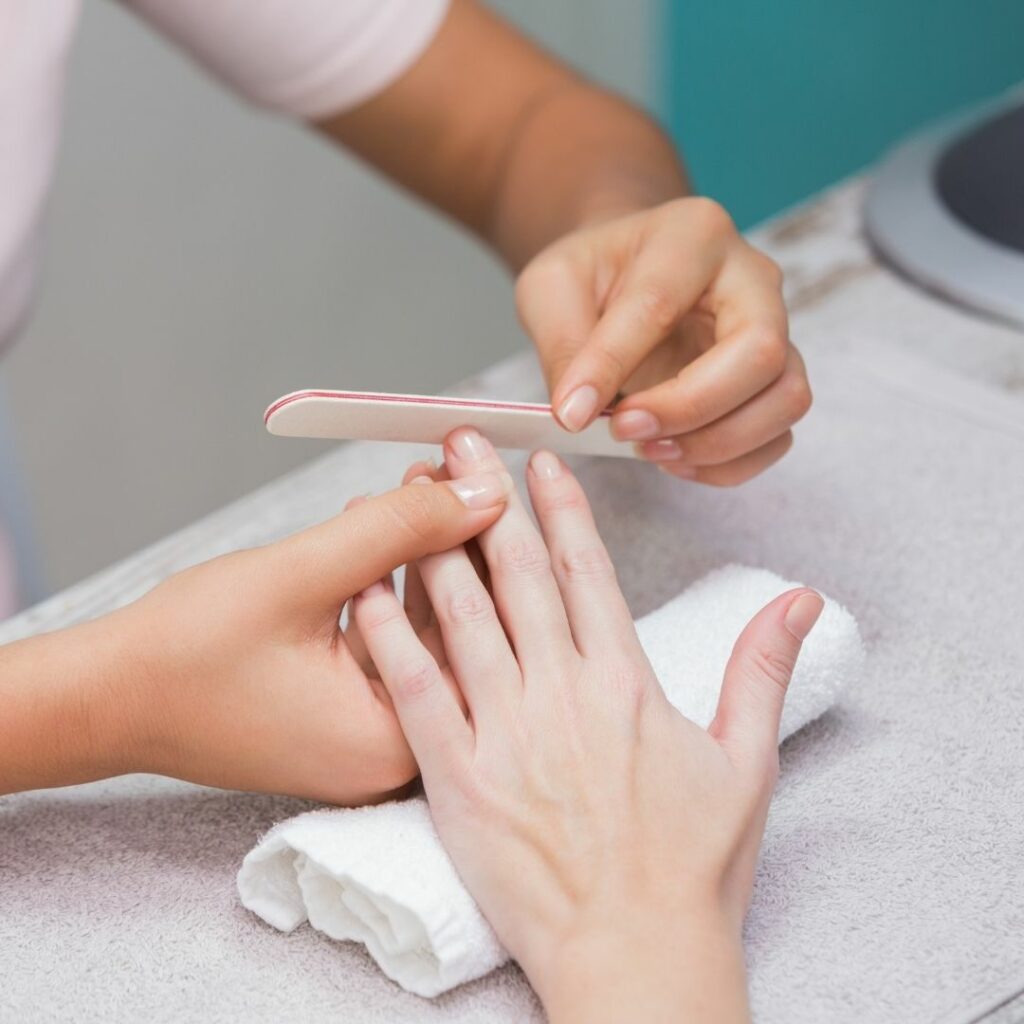New Zealand’s beauty industry is experiencing remarkable growth, with nail technology becoming one of the most sought-after services across the country. Whether you’re looking to launch a new career or expand your existing beauty skills, choosing the right artificial nail course is essential for your success. This comprehensive guide will help you navigate the options available and make an informed decision about your nail technology education in New Zealand.
The Growing Nail Industry in New Zealand
The nail technology sector in New Zealand is thriving, with increasing demand for professional nail services from Auckland to Invercargill. From traditional manicures to intricate nail art and long-lasting artificial nail applications, skilled nail technicians are in high demand. The industry offers excellent opportunities for creativity, flexible working arrangements, and the potential to build a successful business.
Understanding New Zealand’s Nail Technology Qualifications
New Zealand Certificate in Nail Technology (Level 4)
This is the highest level of certification for nail technicians in New Zealand. The Level 4 certificate is recognised nationally and provides comprehensive training in all aspects of nail technology. This qualification covers professional standards, client consultation, natural nail services, nail augmentation, and nail art techniques. These are extensive training programs and often have a high price.
Certificate Programs
Various private training providers such as New Zealand Beauty School reduce the cost of beauty education by offering certificate programs to provide industry-specific training. These programs often focus on specific techniques or brand-specific methods such as Artificial Nail Courses.
Advanced Certificate Options
For those looking to specialise further, advanced certificate programs are available that focus on specific areas like nail art, problem nail solutions, or business management for nail technicians.

Types of Artificial Nail Courses Available
Acrylic Nail Courses
Acrylic nails remain extremely popular in New Zealand. Comprehensive acrylic courses typically cover:
- Nail preparation and sanitation protocols
- Acrylic powder and liquid application techniques
- Sculpting and shaping methods
- French tip applications
- Maintenance and repair procedures
- Troubleshooting common issues
Gel Nail Extension Courses
Hard gel extensions offer durability and a natural appearance. These courses usually include:
- Gel chemistry and product knowledge
- Application techniques for different nail types
- Curing processes and UV/LED lamp usage
- Overlay applications
- Removal procedures
- Colour gel applications
Comprehensive Nail Technology Programs
Many New Zealand institutions offer complete nail technology programs that combine artificial nail techniques with traditional manicure and pedicure services, nail art, and business skills.
Course Duration and Study Options
Full-Time Programs
Most New Zealand Certificate in Nail Technology programs are designed as full-time courses, typically running for 17-20 weeks. These programs provide intensive training and hands-on experience, often on location and with rigid attendance hours.
Part-Time Study
Some providers offer part-time options that allow students to balance study with work or family commitments. These programs may extend over several months but offer greater flexibility. Hours are still rigid, but may offer late night training options.
Online Learning Options
Several New Zealand providers such as New Zealand Beauty School now offer online nail courses, allowing students to complete theory components from home while attending practical workshops for hands-on training.
Intensive Workshops
Specialised providers offer intensive 4-day workshops focusing on specific techniques, perfect for existing beauty professionals looking to add artificial nail services to their skill set.

Key Factors to Consider When Choosing Your Course
Course Content
Look for comprehensive programs that cover:
- Health and safety protocols
- Client consultation and assessment
- Natural nail care and maintenance
- Artificial nail application techniques
- Nail art and design
- Business and customer service skills
- Product knowledge and chemistry
Practical Experience
Quality courses should provide extensive hands-on practice opportunities, including:
- Practice on training hands and live models
- Individual feedback and correction
- Multiple practice sessions for each technique
- Real-world salon experience or placements
Instructor Expertise
Research the qualifications and experience of your instructors. The best courses are taught by experienced nail technicians who are currently working in the industry and can provide practical, up-to-date knowledge.
Course Materials and Equipment
Quality programs should include or provide access to:
- Professional-grade products and tools
- Comprehensive course materials and resources
- Take-home practice kits
- Access to online learning platforms

Cost Considerations
Course costs in New Zealand vary significantly depending on the provider, course length, and level of qualification. Expect to pay:
- Intensive workshops: From $1,800 including comprehensive kits
- Certificate programs: $2,000 – $5,000 depending on duration and provider
- Level 4 qualifications: $5,000 – $8,000 for full programs
Additional costs to consider:
- Professional tools and ongoing supplies
- Insurance and professional memberships
- Continuing education and upskilling courses
Building Your Skills Beyond Basic Training
Continuing Professional Development
The nail industry evolves constantly with new techniques, products, and trends. Look for providers that offer:
- Advanced technique workshops
- New product training
- Nail art specialisation courses
- Business development programs
Specialisation Areas
Consider developing expertise in:
- Corrective nail treatments
- Nail art and creative design
- Luxury nail services
- Eco-friendly and vegan nail products
- Problem nail solutions
Tips for Success in Your Nail Technology Course
Preparation and Mindset
- Approach your course with enthusiasm and professionalism
- Be prepared to practice regularly outside of class time
- Ask questions and seek clarification when needed
- Take detailed notes during theory sessions
Portfolio Development
- Document your work with high-quality photos
- Create a diverse portfolio showcasing different techniques
- Practice on friends and family to build confidence
- Seek feedback from instructors and peers
Networking and Industry Connections
- Connect with fellow students and industry professionals
- Join nail technology groups and forums
- Attend industry events and trade shows
- Follow New Zealand nail artists on social media for inspiration

Starting Your Career After Graduation
Professional Requirements
Upon graduation, you’ll need to consider:
- Professional indemnity insurance
- Health and safety compliance
- Ongoing professional development requirements
- Business registration if working independently
Career Opportunities
Qualified nail technicians in New Zealand can work in:
- Full-service beauty salons
- Nail-only salons and bars
- Spas and wellness centres
- Mobile nail services
- Home-based studios
- Retail environments with nail services
Building Your Client Base
- Start with friends and family to build confidence
- Use social media platforms to showcase your work
- Offer new client specials and loyalty programs
- Provide exceptional customer service
- Ask satisfied clients for reviews and referrals
The Future of Nail Technology in New Zealand
The nail industry in New Zealand continues to evolve with trends toward:
- Sustainable and eco-friendly products
- Health-conscious nail treatments
- Advanced nail art techniques
- Integration with wellness and self-care services
- Mobile and at-home service options
Making Your Decision
Choosing the right artificial nail course is an investment in your future career. Consider factors such as:
- Your learning style and preferred study format
- Budget and time constraints
- Career goals and aspirations
- Location and accessibility
- Provider reputation and industry connections
Take time to research providers, speak with current students or graduates, and visit facilities if possible. Many schools offer information sessions or open days where you can meet instructors and see the learning environment first-hand.
Conclusion
New Zealand’s nail technology industry offers exciting opportunities for creative individuals looking to build rewarding careers in the beauty sector. With the right training and qualification, you can join this growing industry and develop skills that are in high demand across the country.
Whether you choose a comprehensive Level 4 program for thorough preparation, an intensive workshop for quick certification, or an online course for flexibility, the key is selecting a program that aligns with your goals and learning preferences.
Start your journey today by researching your course options, your budget and timeframe, your ability to fit in with course timelines, and taking the first step toward becoming a certified nail technician in New Zealand. With dedication, proper training, and a commitment to ongoing learning, you can build a successful career in this dynamic and creative industry.
Remember that your education doesn’t end with your initial qualification. The most successful nail technicians in New Zealand are those who continue learning, stay current with trends, and always prioritise client safety and satisfaction. Your nail technology course is just the beginning of an exciting career journey in New Zealand’s thriving beauty industry.
